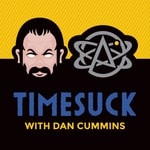Remake – Details, episodes & analysis
Podcast details
Technical and general information from the podcast's RSS feed.

Remake
Eran Dror
Frequency: 1 episode/10d. Total Eps: 100

Recent rankings
Latest chart positions across Apple Podcasts and Spotify rankings.
Apple Podcasts
🇬🇧 Great Britain - design
06/05/2025#88🇬🇧 Great Britain - design
05/05/2025#85🇬🇧 Great Britain - design
04/05/2025#71🇬🇧 Great Britain - design
03/05/2025#54🇩🇪 Germany - design
11/03/2025#95🇬🇧 Great Britain - design
10/03/2025#87🇩🇪 Germany - design
10/03/2025#82🇬🇧 Great Britain - design
09/03/2025#75🇩🇪 Germany - design
09/03/2025#78🇬🇧 Great Britain - design
08/03/2025#51
Spotify
No recent rankings available
Shared links between episodes and podcasts
Links found in episode descriptions and other podcasts that share them.
See all- https://zoom.us/
664 shares
- https://slack.com/
624 shares
- https://thomashuebl.com/
558 shares
- https://www.tiktok.com/
6804 shares
- https://www.instagram.com/
5077 shares
- https://www.instagram.com/remakelabs
100 shares
RSS feed quality and score
Technical evaluation of the podcast's RSS feed quality and structure.
See allScore global : 69%
Publication history
Monthly episode publishing history over the past years.
074. Kevin Kelly: Living with Technology
Season 1 · Episode 74
jeudi 17 août 2023 • Duration 45:55
One of the most tragic aspects of the accelerating pace of change, and rapid evolution of new technologies — is that we as humanity have lost our elders. We begin to see older generations as detached from the current world of innovation, and have to discount advice and experiences gained in an age that feels so different from our own.
Whereas prior generations could count on a world pretty similar to that of their ancestors, when we look to the future, pretty much the only thing we’re sure of is that it’s not going to look like the past, or even the present.
But we still yearn for some sage advice, at least I know I do. And wouldn’t it be wonderful if we did have someone who could help us navigate a time of tremendous, accelerating change?
That’s why I was so excited to talk to Kevin Kelly.
Kevin is perhaps the closest thing Silicon Valley has to such a sage. Someone who not only witnessed the tremendous rise of digital technology, but thought about it deeply as it was happening and developed models for thinking about it.
In 1993, Kevin co-founded the groundbreaking Wired magazine, and served as its Executive Editor for its first seven years. In 1994, he wrote Out of Control, the classic book on decentralized emergent systems. In 2010 he published What Technology Wants, a robust theory of technology and the complex, almost organic systems that drive it, and in 2017 he published The Inevitable, a New York Times and Wall Street Journal bestseller about the inevitable trends driving technology.
His latest book Excellent Advice for Living: Wisdom I Wish I'd Known Earlier, is an offering of 450 useful aphorisms or principles for living he’s devised over his life amidst the changes.
EPISODE SUMMARY
In this conversation we talk about:
- How did DIY culture shape Kevin's worldview from a young age?
- What inspired Kevin to co-found Wired magazine?
- Why does Kevin claim technology has a will of its own?
- What is his take on AI advances of today?
- Why did he decide to write a book of pithy life advice?
- What is some of Kevin's most counterintuitive advice around decision making and change?
- How can we live fully before our time is up?
My favorite piece of advice in the episode is about choosing a path of change. Without giving away the content, I’ll just say I’ve brought it up multiple times in conversation with friends about their dilemmas, and when considering my own life decisions.
TIMESTAMP CHAPTERS
These timestaps are AI-generated and could prove inaccurate.
(Please let us know if you find any issues here: podcast@remakelabs.com )
- Early Making and DIY Culture (00:08:17 - 00:10:16)
- The Origins of Wired Magazine (00:15:18 - 00:17:30)
- Technology's Inherent Tendencies (00:19:32 - 00:22:05)
- AI as Future Partners (00:25:11 - 00:27:02)
- Truth and AI (00:28:17 - 00:31:20)
- Advice for Living Wisdom (00:32:14 - 00:36:39)
- Giving and Getting (00:36:59 - 00:38:16)
- Learning vs "Can't Do" (00:38:57 - 00:39:42)
- Choosing Change (00:40:55 - 00:41:57)
- Embodying Your Full Potential (00:42:24 - 00:44:45)
EPISODE LINKS
-
Kevin Kelly's Links:
- Website: https://kk.org/
- Twitter: https://twitter.com/kevin2kelly
- Organizations: https://kk.org/cooltools/
-
Books, Articles, and Resources Mentioned:
- Wired Magazine: https://www.wired.com/
- Out of Control by Kevin Kelly: https://kk.org/books/out-of-control/
- What Technology Wants by Kevin Kelly: https://kk.org/books/what-technology-wants/
- The Inevitable by Kevin Kelly: https://kk.org/books/the-inevitable/
- Excellent Advice for Living by Kevin Kelly: https://kk.org/books/excellent-advice-for-living/
ABOUT US
- Remake Podcast: Visit us: RemakePod.org
- 🙏🏻 Rate the show on iTunes
- 🙏🏻 Support us! Join the Podcast Member community
- 💌 Share your thoughts: podcast@remakelabs.com
- 👉 Listen or Subscribe to the show: Apple Podcasts・Google Podcasts・RadioPublic・Overcast・Stitcher・PocketCasts・Castro・SoundCloud・Spotify・YouTube・Deezer
- Remake Labs: RemakeLabs.com・Medium・LinkedIn・Community・Twitter・Facebook・Instagram
- Eran Dror: EranDror.com・LinkedIn・Twitter・Medium
026. Rabbi Amichai Lau-Lavie: Community, Ritual, and Creativity
Season 1 · Episode 26
jeudi 10 août 2023 • Duration 01:22:39
Rabbi Amichai Lau-Lavie is an Israeli-born, Jewish educator, writer, and performance artist. He's the creator of Storahtelling, Inc. and the founding spiritual leader of Lab/Shul in NYC, an artist-driven, everybody friendly, God-optional, pop-up experimental community for sacred Jewish gatherings.
Amichai is a member of the Global Justice Fellowship of the American Jewish World Service, a founding member of the Jewish Emergent Network, serves on the Leadership Council of the New York Jewish Agenda, the Advisory Council of the International School for Peace - a Refugee Support Project in Greece, a member of the Advisory Council for the Institute for Jewish Spirituality, and is a faculty member of the Reboot Network.
Through all his endeavors, he brings a creative, inclusive, and vital energy to Jewish practice and Jewish life.
EPISODE SUMMARY
In this conversation we talk about:
- How the Jewish concept of the set table served both as a happy early memory, and as an organizing principle for his later work.
- How Covid 19 made rituals and online communities more important than ever.
- His orthodox roots as the scion of an ancient and respected rabbinical dynasty, and his journey of self discovery through theater, drag, and art.
- His creation of storytelling, a way to bring to life the ancient ritual of the reading of the Torah, and the Maven Method he developed to spread the practice further.
- The emergence of Lab/Shul and the community around it.
- The power of spiritual design and a well-designed practice in transforming our lives and our communities for the better.
We also discuss:
- How is religion used as a tool in the service of humanity?
- What happens if you bring scripture to the 21st century as a performance?
- Why is the tribal wisdom of small circles within a bigger circle so important?
I've long believed that one of the most promising avenues to apply design skills and creativity to is in designing communities, social rituals, and spiritual practice that suits the modern world. And, as such, there's no one I can think of that exemplifies this better than Rabbi Amichai Lau-Lavie. I think this conversation, which is full of wisdom and fun, is a great introduction to exactly the type of spiritual design we need to see more of. So let's jump right in with Rabbi Amichai Lau-Lavie.
TIMESTAMP CHAPTERS
[3:52] Life During Covid
[10:17] The Wisdom of the Set Table
[22:31] The Birth of Storahtelling
[29:55] A Paradigm Shift from Patriarchy
[38:25] Rebirth of the Translator
[54:34] The Design of Lab/Shul
[1:00:19] Design Thinking and Virtual Practice
[1:11:54] Individualism vs Collectivism
[1:19:36] The Significance of the Tree
EPISODE LINKS
- Amichai's Links
- Other Links
ABOUT US
- Remake Podcast: Visit us: RemakePod.org
- 🙏🏻 Rate the show on iTunes
- 🙏🏻 Support us! Join the Podcast Member community
- 💌 Share your thoughts: podcast@remakelabs.com
- 👉 Listen or Subscribe to the show: Apple Podcasts・Google Podcasts・RadioPublic・Overcast・Stitcher・PocketCasts・Castro・SoundCloud・Spotify・YouTube・Deezer
- Remake Labs: RemakeLabs.com・Medium・LinkedIn・Community・Twitter・Facebook・Instagram
- Eran Dror: EranDror.com・LinkedIn・Twitter・Medium
054. Jay McClelland: Networks That Learn
Season 1 · Episode 54
jeudi 18 mai 2023 • Duration 01:20:28
Jay McClelland is a Computational Cognitive Neuroscientist and one of the founding fathers of the field of neural networks and deep learning in the 1980s, which led directly to today's explosion in AI and machine learning algorithms that are transforming our lives. He is the Lucie Stern Professor at Stanford University, where he was formerly the chair of the psychology department, and is currently a Consulting Research Scientist at DeepMind, perhaps the leader in machine learning technologies today.
Jay is best known for his work on statistical learning and parallel distributed processing, applying connectionist models (or neural networks) to explain cognitive phenomena such as spoken word recognition and visual word recognition. Today, he works on integrating language, memory, and visuospatial cognition in an integrated understanding system to capture human intelligence and enhance artificial intelligence, exploring how education and human-invented tools of thought can enhance human and machine intelligence.
EPISODE SUMMARY
In this conversation we talk about:
- Lessons from his youth, where he moved around the world as a child and interacted with different religions and backgrounds, which helped him understand that we are shaped by our contexts and experiences.
- His entry into cognitive psychology, and going beyond the laws of behavior into: Why do people behave the way they do?
- Building neural networks to model cognition.
- His world-changing PDP paper (Parallel Distributed Processing: Explorations in the Microstructure of Cognition), a paper that was published in 1986 and transformed this whole field, and directly led to more and more people embracing the connectionist model and neural networks.
- The fact and meaning of bi-directionality in neural networks. What does it mean that information can flow both ways in the same network structure?
- Generative models, and in this context, OpenAI's DALL-E 2 algorithm, which can create amazing illustrations and artworks — and should we credit generative or creative algorithms with artistry and give them credit for their art?
- Consciousness — does it extend beyond humans and is it something that we may be able to find someday in algorithms?
Talking to Jay really reminded me of the best in mankind, that through curiosity, asking interesting questions, and constructing thought models and experiments, we can unlock such a subtle and fundamental thing like cognition and the connectionist model, which then unlocks all of this power for society at large. We now have this responsibility to reign in the worst of mankind in how we exploit, curate, and share in the benefits of this incredible power. This will be a running topic for us, AI in the future. We explore the power of design and human-centered thinking to create a better future for everyone.
This conversation with Jay is one of many weekly conversations we already have lined up for you with leading authors, thinkers, designers, makers, scientists, and social entrepreneurs who are working to change our world for the better. So follow this podcast on your favorite podcast app, or head over to remakepod.org to subscribe.
And now, let's jump right in with Jay McClelland.
TIMESTAMP CHAPTERS
[7:28] Life in the Present
[9:08] Early Childhood Perspectives
[12:33] A Path to Psychology
[22:16] Modeling Cognition
[27:37] Neural Networks
[35:16] The Significance of Bi-Directionality
[40:21] Bistable Perception
[43:55] The Truth of Mathematics
[49:24] An Emergentist
[55:17] Technology and AI
[1:01:17] An Accumulation of Experience
[1:07:20] On Consciousness
[1:15:47] A Short Sermon
EPISODE LINKS
- Jay's Links
- 🏫 Stanford University
- 🏫 Columbia University
- 🏫 University of Pennsylvania
- 🤖 DeepMind
- 📘 Parallel Distributed Processing, Vol. 1: Foundations by James L. Mcclelland and David E. Rumelhart
- 📘 Parallel Distributed Processing Vol. 2: Psychological and Biological Models by James L. Mcclelland and David E. Rumelhart
- 💼 LinkedIn: LinkedIn Profile
- 📣 Twitter: @JLMcCelland
- Other Links
ABOUT US
- Remake Podcast: Visit us: RemakePod.org
- 🙏🏻 Rate the show on iTunes
- 🙏🏻 Support us! Join the Podcast Member community
- 💌 Share your thoughts: podcast@remakelabs.com
- 👉 Listen or Subscribe to the show: Apple Podcasts・Google Podcasts・RadioPublic・Overcast・Stitcher・PocketCasts・Castro・SoundCloud・Spotify・YouTube・Deezer
- Remake Labs: RemakeLabs.com・Medium・LinkedIn・Community・Twitter・Facebook・Instagram
- Eran Dror: EranDror.com・LinkedIn・Twitter・Medium
073. Eli Green: Gender Beyond the Binary
Season 1 · Episode 73
jeudi 11 mai 2023 • Duration 01:11:30
Today we're talking about transgender issues.
Specifically, what should the rest of us know about transgender people? This is a topic that I admit I know very little about, but one that feels important at the very least, if one wants to avoid causing unnecessary pain. Language itself seems to be changing when it comes to gender, and while some resistance is natural and no generally agreed upon set of rules has been widely accepted, it's important to understand why these changes are happening and what's behind them.
I can't imagine someone more perfect to talk to about this subject than Dr. Eli Green. Eli is the founder and CEO of the Transgender Training Institute. They are an award winning educator and author with over 20 years facilitating transgender related education and supporting other gender educators. Dr. Green has helped thousands of people have a better understanding of what it means to be transgender and nonbinary and how to support and affirm the transgender and nonbinary people in their lives, workplaces, and communities. Eli brings kindness, patience, and authentic connection to the topic, making the gender conversation one that seems inviting, a place you'd like to be rather than a place to avoid.
We spoke in mid January 2022, and it was really the first time I felt like I had a grasp of what we're talking about. When we talk about gender and transgender rights and challenges.
EPISODE SUMMARY
In this conversation we talk about:
- Eli's childhood and early realization on how people are treated differently based on gender.
- How Eli recognized they were nonbinary at a young age, but not having the language for it.
- Eli's process of coming out as nonbinary is transgender transition, facing discrimination as a nonbinary person, including transphobia and barriers to accessing resources.
- The differences between gender and sex and how they are not the same.
- The importance of kindness and affirmation for the LGBTQ plus community.
- How Cisgendered people can support and advocate for trans rights.
- Eli's work with the Transgender Training Institute, which provides education and training on trans issues to businesses, organizations, and government agencies changing hearts and minds, and the need for systemic change to support nonbinary people.
- How does religion enter into the picture?
- What do most people still need to understand about transgender and non-binary individuals?
- What is the significance of the dynamism of language in this area?
- Understanding Gender Prejudice
What stayed with me most of all is the ever present need for kindness, the need to make an effort to see things from a different person's perspective. This applies equally to cisgendered folks learning about gender dysphoria, as it does to activists understanding that ignorance does not equal malice. In both cases, the smallest gesture of kindness can open the door to a whole new way of relating and moving forward, in which specific details can be discussed from a place of trust.
We already have lined up for you with thinkers, designers, makers, authors, entrepreneurs, and activists who are working to change our world for the better. We have some amazing episodes lined up for you, answering questions like:
Why is prototyping essential to making truly new things?
What's the value of knowing what you're about and crafting a personal manifesto? How can we find the freedom to think in an increasingly connected world?
So follow this podcast on your favorite podcast app, or head over to RemakePod.org to subscribe. And if you're a subscriber already and enjoy our show, you can go to RemakePod.org/support and join our supporter community.
And now, without further ado, let's jump right in with Dr. Eli Green.
TIMESTAMP CHAPTERS
[5:31] Life in the Present
[6:53] Early Childhood Realizations
[15:56] Coming Out as a Trans
[20:42] Significance, Evolution and Expansion of Labels and Languages
[28:30] Learning Human Sexuality in Academia
[32:07] From Academia to Establishing the Transgender Training Institute
[35:50] The TTI Teaching Pedagogy
[38:37] Success Stories
[42:29] LGBTQ+ Present Issues and Obstacles
[47:33] Alliance vs Friendship
[51:19] Elements of being a Good Ally
[53:04] Gender Pronouns
[57:15] Importance of Being Kind
[01:02:51] Company Design and Structure
[01:09:33] Short Sermon
EPISODE LINKS
- Eli's Links
- Dr. Eli Green
- Transgender Training Institute
- 💼 LinkedIn: LinkedIn Profile
- Facebook: Dr. Eli Green
- 🎤 TED Talk - Eli Green
ABOUT US
- Remake Podcast: Visit us: RemakePod.org
- 🙏🏻 Rate the show on iTunes
- 🙏🏻 Support us! Join the Podcast Member community
- 💌 Share your thoughts: podcast@remakelabs.com
- 👉 Listen or Subscribe to the show: Apple Podcasts・Google Podcasts・RadioPublic・Overcast・Stitcher・PocketCasts・Castro・SoundCloud・Spotify・YouTube・Deezer
- Remake Labs: RemakeLabs.com・Medium・LinkedIn・Community・Twitter・Facebook・Instagram
- Eran Dror: EranDror.com・LinkedIn・Twitter・Medium
055. Tobias Rees: Transforming the Human
Season 1 · Episode 55
jeudi 4 mai 2023 • Duration 01:20:10
In the early 2010s, he recognized that contemporary technology not only disrupts our historical established ways of thinking and doing, but also creates new ones: radically new possibilities that unfold beyond what we take for granted. This, he believes, is not only a sweeping event in the history of thought, but also a major opportunity; technology itself has become philosophical, and it has become possible to “do” philosophy by building and inventing new technologies.
This led him on a path to building a new institution, dedicated to the interplay of philosophy, art, science, and engineering, and to the way they blur the lines between the human and nonhuman.
EPISODE SUMMARY
In this conversation we talk about:
- Growing up with no books and few words in a small peasant village in Southern Germany.
- The importance and uses of silence which stayed with him ever since.
- How he became interested in philosophy, and the big questions after his grandfather's death.
- Moving freely from philosophy to comparative religion to anthropology and art history.
- The happy accident that led him to studying neurobiology and learning to see himself as a brain.
- The importance of concepts in framing our day-to-day experience.
- What do terms like human and humanity mean? When were they introduced? How did they evolve?
- What is the relationship between nature, humans, and machines?
- His work with some of the largest technology companies who are building a future to bring philosophy and art into the room.
- Where does creativity lie with AI algorithms like DALL·E 2?
- And the need to always reexamine our assumptions about the world and our values.
This conversation with Tobias is one of many weekly conversations we already have lined up for you with thinkers, designers, authors, makers, activists, and leaders who are working to change our world for the better. So follow this podcast on your favorite podcast app, or head over to RemakePod.org to subscribe.
And now let’s jump right in, with Dr. Tobias Rees.
TIMESTAMP CHAPTERS
[5:18] Life in the Present
[7:00] Early Childhood Silence
[13:44] An Educational Journey
[22:49] The Importance of Concepts
[32:04] A Period of Growth and Sadness
[40:47] An Opening of Doors
[44:55] The Term 'Human'
[56:12] Anthropology of Machines
[1:11:35] Merging Philosophy with Engineering
[1:17:55] A Short Sermon
EPISODE LINKS
- Tobias' Links
- Other Links
- 📕 The Apology of Socrates by Plato
- 🔬 Lawrence Berkeley National Laboratory
- 🌎 Cloudera
- 💻 Microsoft
- 🏨 The Beverly Hills Hotel
- 💉 The Global HIV Vaccine Enterprise
- 🌎 Gates Foundation
- 🎗️ Fred Hutchinson Cancer Center
- 🏫 Institute for Health Metrics and Evaluation
- 📕 Race and History by Claude Lévi-Strauss
- 🎧 Jay McClelland Interview
- 🤖 OpenAI
- 🤖 DALL·E 2
- 📷 Adobe Photoshop
- 🏫 Stanford University
- 🌎 X, the moonshot factory
- 🎤 TED Talk - Alain de Botton
ABOUT US
- Remake Podcast: Visit us: RemakePod.org
- 🙏🏻 Rate the show on iTunes
- 🙏🏻 Support us! Join the Podcast Member community
- 💌 Share your thoughts: podcast@remakelabs.com
- 👉 Listen or Subscribe to the show: Apple Podcasts・Google Podcasts・RadioPublic・Overcast・Stitcher・PocketCasts・Castro・SoundCloud・Spotify・YouTube・Deezer
- Remake Labs: RemakeLabs.com・Medium・LinkedIn・Community・Twitter・Facebook・Instagram
- Eran Dror: EranDror.com・LinkedIn・Twitter・Medium
037. Karoli Hindriks: Redesigning the Passport
Season 1
jeudi 30 mars 2023 • Duration 54:42
In 2020 the EU Council named her one of the 8 most inspiring women in Europe. In 2021, she was a speaker at the TED conference in Monterey, CA talking about reinventing the passport.
EPISODE SUMMARY
In this conversation we talk about:
- Growing up in post-USSR Estonia.
- Founding her first company at 16, officially becoming the youngest inventor in her country.
- Leading the launch of seven television channels in Northern Europe, including National Geographic Channels and MTV.
- Her aha! moment regarding immigration and migration while in Silicon Valley.
- The migration and mobility revolution.
- What Jobbatical is doing to facilitate movement of talent and knowledge to where it's most needed.
- Reinventing the passport for the new global economy and the modern age.
- And much more.
This conversation with Karoli is one of a dozen or so weekly conversations we already have lined up for you with thinkers, designers, makers, authors, entrepreneurs, activists, and impact investors who are working to change our world for the better. So follow this podcast on your favorite podcast app, or head over to remakepod.org to subscribe.
And now let's jump right in with Karoli Hindriks.
TIMESTAMP CHAPTERS
[2:45] Life During Covid
[6:27] Early Childhood Encouragement
[9:35] The Singing Revolution
[12:42] The Youngest Inventor
[14:27] Making a Difference
[16:45] The Inspiration for Jobbatical
[20:19] A Mobility Revolution
[26:33] The State of Immigration and the Passport
[33:38] The UX of a Country
[38:40] Reinventing the Passport
[46:18] Advantages of Hiring Globally
[50:29] A Short Sermon
EPISODE LINKS
- Karoli's Links
- 🌍 Jobbatical
- 🎤 TED Talk
- 💼 LinkedIn: LinkedIn Profile
- 📣 Twitter: @karolihindriks
- 📷 Instagram: @karolih
- 📺 YouTube Channel
- Other Links
ABOUT US
- Remake Podcast: Visit us: RemakePod.org
- 🙏🏻 Rate the show on iTunes
- 🙏🏻 Support us! Join the Podcast Member community
- 💌 Share your thoughts: podcast@remakelabs.com
- 👉 Listen or Subscribe to the show: Apple Podcasts・Google Podcasts・RadioPublic・Overcast・Stitcher・PocketCasts・Castro・SoundCloud・Spotify・YouTube・Deezer
- Remake Labs: RemakeLabs.com・Medium・LinkedIn・Community・Twitter・Facebook・Instagram
- Eran Dror: EranDror.com・LinkedIn・Twitter・Medium
017. Hila Lifshitz-Assaf: Open Up to Innovation
Season 1
jeudi 23 mars 2023 • Duration 01:36:30
TODAY’S GUEST
Dr. Hila Lifshitz-Assaf is an Associate Professor at NYU Stern. She is also a faculty associate at Harvard’s Lab for Innovation Science. Her work received the prestigious INSPIRE grant from the National Science Foundation, has been recognized to have a strong impact on industry, and has been taught at a variety of institutions around the world including MIT, Harvard, Stanford, Wharton, London Business School, Columbia, and Carnegie Mellon.
Hila spent 3 years at NASA, studying their adoption of open innovation processes, which led to many insights and an award-winning dissertation and paper. She continues to investigate new innovation processes such as crowdsourcing, open source, open online innovation communities, Wikipedia, hackathons, makeathons, etc.
EPISODE SUMMARY
In this conversation we discuss:
[2:47] Covid situation, teaching remotely.
[4:41] Leading COVID-19 hackathons, open innovation.
[10:37] Crisis as impetus for change.
[14:21] Developing curiosity in early childhood. Questioning boundaries.
[19:01] Pre-academic career: law, consulting, listening to people and seeing their psychology as business drivers.
[25:27] Getting interested in innovation, innovation as the "Big Question" of business.
[28:25] Working with NASA, NASA's culture.
[40:22] Open innovation study at NASA.
[48:01] How peoples' identity can hold innovation back.
[53:28] Growth mindset & belief.
[55:34] The pace of change.
[57:30] The causes of dysfunction.
[1:01:09] Embracing a little chaos.
[1:12:14] Bias towards action.
[1:14:10] Remote work & creativity.
[1:22:05] Managing for creativity.
[1:30:24] A short sermon for creative managers.
EPISODE LINKS
- Hila's Links
- Other Links
ABOUT US
- Remake Podcast: Visit us: RemakePod.org
- 🙏🏻 Rate the show on iTunes
- 🙏🏻 Support us! Join the Podcast Member community
- 💌 Share your thoughts: podcast@remakelabs.com
- 👉 Listen or Subscribe to the show: Apple Podcasts・Google Podcasts・RadioPublic・Overcast・Stitcher・PocketCasts・Castro・SoundCloud・Spotify・YouTube・Deezer
- Remake Labs: RemakeLabs.com・Medium・LinkedIn・Community・Twitter・Facebook・Instagram
- Eran Dror: EranDror.com・LinkedIn・Twitter・Medium
046. Shari Davis: The Power of Participatory Budgeting
Season 1
jeudi 16 mars 2023 • Duration 55:26
Shari Davis is a TED speaker, a participatory budgeting facilitator, and as she defines it, a recovering local government employee. She joined the Participatory Budgeting Project (PBP) after nearly 15 years of service and leadership in local government. As director of youth engagement and employment for the City of Boston, she launched Youth Lead the Change, the first youth participatory budgeting process in the US, which won the US Conference of Mayor's City Livability Award.
We spoke at the end of February, and I was very excited to talk to Shari because of her work on participatory budgeting, which seems to be one of the most promising new ways for everyday citizens, from all walks of life, to supervise and have a say in how public funds are being spent. Participatory budgeting has the potential for having an enormous impact on corruption, on efficient use of funds, on creating better, more efficient and more impactful programs, and also a huge effect on how people feel about their government. And all of this is already happening around the world, so I was very excited to hear about this from someone who's really leading this movement.
It was really fun to chat with Shari. She clearly has a lot of practice at connecting with, and including many different kinds of people. And so she puts you right at ease and she uses humor effectively. But it was the topic of the conversation that was really amazing to hear about.
( * Please note: this episode was originally recorded under they/she pronouns. )
EPISODE SUMMARY
In this conversation we talk about:
- How her early involvement in martial arts as a kid really shaped her attitudes towards practice, responsibility, and community.
- How she initially got involved in the city government in Boston, eventually leading the youth department and bringing together resources and services for the youth of the city into one place.
- How she was asked to lead Youth Lead the Change.
- How the city earmarked $1M to be spent however the youth decided it should be spent, using the power of participation to make better decisions, and how that whole process unfolded.
- The US democracy's fatal flaw and how a lot of decisions happen in non-transparent, closed-door ways, ways that deepen inequality and division.
- How to run and lead a successful inclusive participatory budgeting project, whether you're a local government, a school, a non-profit or a national government, and why that makes such a huge difference.
What stayed with me is this idea that by bringing people together and putting them in the right kind of process, and then paying attention and designing the process itself, how much better decisions are. Talking to Shari was really energizing and hopeful, and this is one of our goals with every conversation we bring you including several conversations we already have lined up for you with thinkers, designers, makers, authors, entrepreneurs, and activists who are working to change our world for the better. So if you're interested in these types of hopeful conversations, follow this podcast on your favorite podcast app, or head over to remakepod.org to subscribe.
And now let's jump right in with Shari Davis.
TIMESTAMP CHAPTERS
[4:48] Life During Covid
[9:26] Early Childhood Guiding Forces
[16:22] A Journey From Martial Arts to Government
[22:29] Democracy's Fatal Flaw
[26:51] Youth Lead the Change
[34:56] Participatory Budgeting Project
[43:04] Inclusive Design
[45:16] Traveling Into the Future
[49:54] Where Hope Lives
[53:02] A Short Sermon on Change
EPISODE LINKS
- Shari's Links
- 🌎 Participatory Budgeting Project
- 🌎 Youth Engagement and Employment
- 🌎 Youth Lead the Change
- 🎤 TED Talk
- 💼 LinkedIn: LinkedIn Profile
- 📣 Twitter: @Shari_Davis1
- 📺 YouTube Channel
- Other Links
ABOUT US
- Remake Podcast: Visit us: RemakePod.org
- 🙏🏻 Rate the show on iTunes
- 🙏🏻 Support us! Join the Podcast Member community
- 💌 Share your thoughts: podcast@remakelabs.com
- 👉 Listen or Subscribe to the show: Apple Podcasts・Google Podcasts・RadioPublic・Overcast・Stitcher・PocketCasts・Castro・SoundCloud・Spotify・YouTube・Deezer
- Remake Labs: RemakeLabs.com・Medium・LinkedIn・Community・Twitter・Facebook・Instagram
- Eran Dror: EranDror.com・LinkedIn・Twitter・Medium
003. Shahar Avin: Playing for AI’s Future?
Season 1
jeudi 9 mars 2023 • Duration 01:34:53
TODAY’S GUEST
Dr. Shahar Avin is a Senior Research Associate at the Center for the Study of Existential Risk (CSER) at Cambridge University, focusing primarily on risks associated with artificial intelligence and deep learning algorithms.
EPISODE SUMMARY
We discuss:
- Shahar’s unique approach of discovering truths through simulation and gaming.
- His insights into how to fix the broken system of science-funding.
- The existential risks associated with the rise of machine intelligence.
- Shahar's project, Intelligence Rising, in collaboration with Oxford University’s Future of Humanities Institute and our own Remake Labs, to create a strategic scenario game that will help educate decision makers on the possible risks and effects of the accelerating development in AI capabilities in the next few years.
EPISODE LINKS
- Dr. Shahar Avin's Links
ABOUT US
- Remake Podcast: Visit us: RemakePodcast.org
- 🙏🏻 Rate the show on iTunes
- 🙏🏻 Support us! Join the Podcast Member community
- 💌 Share your thoughts: podcast@remakelabs.com
- 👉 Subscribe to the show: Apple Podcasts・Google Podcasts・RadioPublic・Overcast・Stitcher・PocketCasts・Castro・SoundCloud・Spotify・YouTube・Deezer
- Remake Labs: RemakeLabs.com・Medium・LinkedIn・Community・Twitter・Facebook・Instagram
- Eran Dror: EranDror.com・LinkedIn・Twitter・Medium
072. Leah Ziliak: The Coliving Cause
Season 1 · Episode 72
jeudi 2 mars 2023 • Duration 48:29
Today, we're talking about coliving.
I've long believed that paying attention to the fact that humans evolved to live in tribes, as opposed to isolated nuclear families, was the key to unlocking a tremendous amount of latent needs, wellbeing, and happiness. Today, a convergence of different trends is making coliving a real movement in the west.
Whereas in much of the world, living in community is a thing as old as time. The rise in real estate costs, financial recession, urban loneliness, the digital nomad lifestyle, and the advent of online communities and coworking spaces led many to a natural conclusion — that living more densely when it involves a real community of like-minded individuals could be not only more affordable, but actually more fulfilling.
Commercial coliving companies such as Selina, Outpost, and Adam Neumann's new Flow, as well as thousands of coliving communities around the world, are offering a less lonely, more connected, and fuller hospitality, travel, or long-term living experience. They help making sense of a new city, finding new friends, and experiencing belonging, a much more straightforward process, and in the process help us challenge the way things have always been done. That's why I was excited to talk to Leah Ziliak.
Leah founded The Coliving Consultant in 2019 and has become one of the most sought-after coliving professionals in the field. She's an international speaker, writer, and entrepreneur, and works with coliving brands around the world to create positive customer experiences within shared living. As a digital nomad, Leah travels the world full-time and works with clients both on-site and remotely.
We spoke in January 2023, and it was really great to learn from Leah, who's clearly thought about these topics deeply and has deep experience, both living in and designing these sorts of communities.
EPISODE SUMMARY
In this conversation we talk about:
- Her digital nomad lifestyle.
- How having a pen pal from another country instilled a desire in her to explore other cultures.
- What it was like to live and work on a cruise ship.
- Why she left her music career to become a digital nomad and coliving consultant.
- What is coliving, and what are the range of options for the coliving curious?
- Why is coliving becoming such a trend around the world?
- The freeing experience of coliving for solo digital nomads.
- The value of community and the importance of friendships.
- Different types of coliving spaces.
- Coliving versus packing more people in a small space.
- Crafting a community experience, and also a hospitality experience.
- Getting people involved in the creation versus supplying everything.
- Coliving and old age.
- Why is coliving slower to take off in the United States?
- The urge to explore the world versus the urge to lay roots and nest.
- And her new group, teaching more women how to travel solo.
Design is all about challenging defaults, and so what stayed with me the most is how important it is to challenge societal defaults in terms of our living situation, geography, and lifestyle. Who said the right way to live is to work hard all day so that you can afford a large house with a fence and smart locks to keep everyone else out? And who said that we have to wait until retirement to spend significant time traveling the world?
We have some amazing episodes lined up for you with thinkers, designers, makers, authors, and activists, answering questions like:
- What do most people still need to understand about transgender and non-binary individuals?
- Why is prototyping essential to making truly new things?
- What's the value of knowing what you're about and crafting a personal manifesto?
- And how can we find the freedom to think in an increasingly connected world?
So follow this podcast on your favorite podcast app, or head over to RemakePod.org to subscribe. And if you're a subscriber already and enjoy our show, you can go to RemakePod.org/support and join our supporter community.
And now, without further ado, let's jump right in with Leah Ziliak.
TIMESTAMP CHAPTERS
[5:53] Life in the Present
[7:52] A Childhood Connection
[9:16] A Transition to Travel
[10:06] The Community of Ship Life
[11:37] A Journey to Coliving
[15:13] What is Coliving?
[17:32] Coliving Space Examples
[20:07] Values and Cultures
[25:36] The Coliving Consultant
[28:06] On Community
[31:59] Coliving for Seniors
[36:41] A Cultural Divide
[41:27] Navigating Travel and Roots
[45:43] A Short Sermon
EPISODE LINKS
- Leah's Links
- 🏘️ The Coliving Consultant
- 🏘️ co:home
- 👵 Senior Coliving: The Future of Shared Housing
- 🏫 Belmont University
- 💼 LinkedIn: LinkedIn Profile
- 📷 Instagram: @colivingconsultant
- 📣 Twitter: @LeahZiliak
- 📺 YouTube Channel
- Other Links
- 🏘️ Selina CoLive
- 🏘️ Outpost
- 🌎 Burning Man
- 💼 WeWork
- 🌎 Welive
- 🏡 Airbnb
- 📺 WeCrashed
- Apple TV
- 🏘️ Sun and Co.
- 🌎 Erich Fromm
- 🎤 TED Talk - Alain de Botton
ABOUT US
- Remake Podcast: Visit us: RemakePod.org
- 🙏🏻 Rate the show on iTunes
- 🙏🏻 Support us! Join the Podcast Member community
- 💌 Share your thoughts: podcast@remakelabs.com
- 👉 Listen or Subscribe to the show: Apple Podcasts・Google Podcasts・RadioPublic・Overcast・Stitcher・PocketCasts・Castro・SoundCloud・Spotify・YouTube・Deezer
- Remake Labs: RemakeLabs.com・Medium・LinkedIn・Community・Twitter・Facebook・Instagram
- Eran Dror: EranDror.com・LinkedIn・Twitter・Medium









